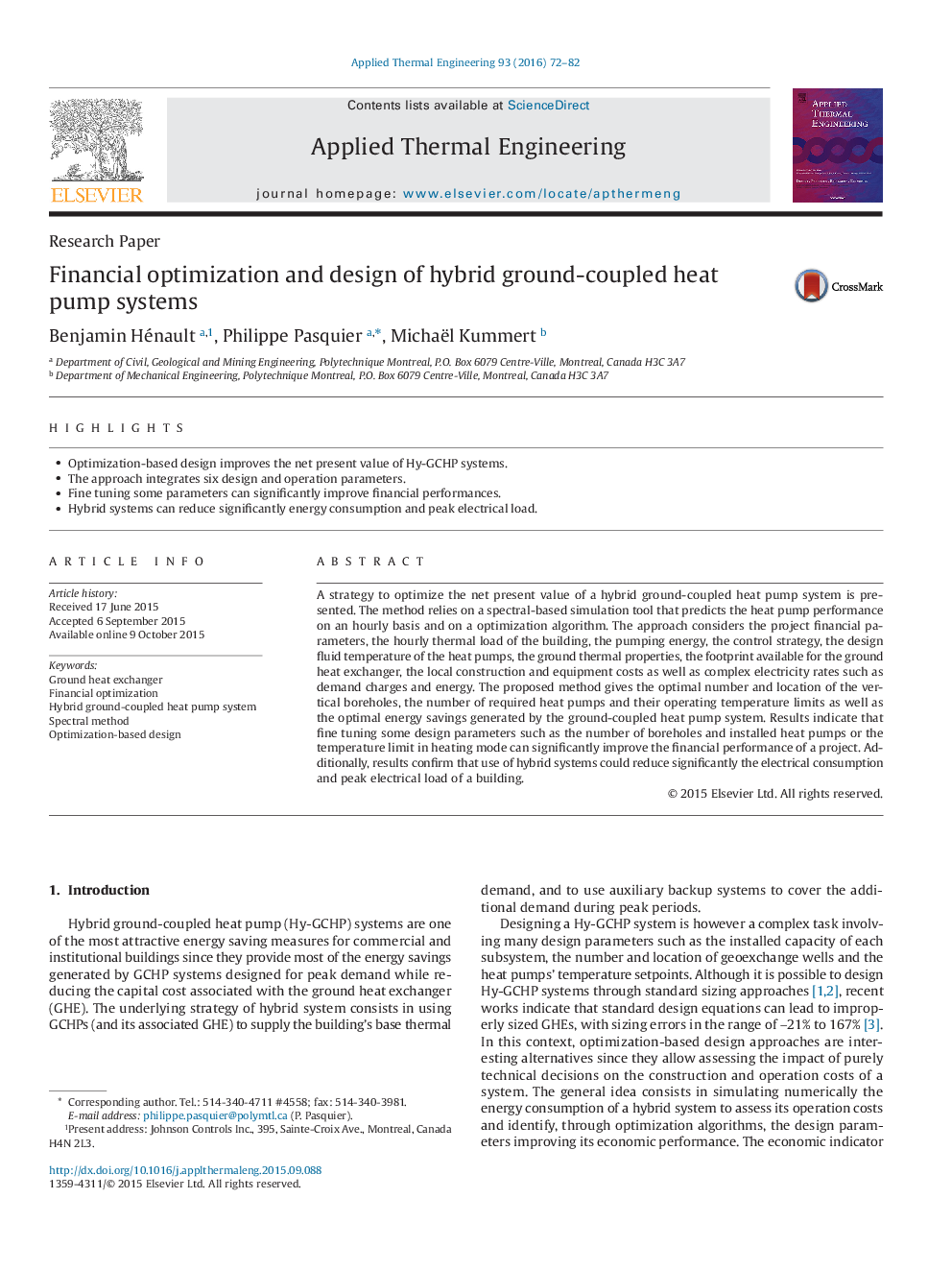| Article ID | Journal | Published Year | Pages | File Type |
|---|---|---|---|---|
| 7048714 | Applied Thermal Engineering | 2016 | 11 Pages |
Abstract
A strategy to optimize the net present value of a hybrid ground-coupled heat pump system is presented. The method relies on a spectral-based simulation tool that predicts the heat pump performance on an hourly basis and on a optimization algorithm. The approach considers the project financial parameters, the hourly thermal load of the building, the pumping energy, the control strategy, the design fluid temperature of the heat pumps, the ground thermal properties, the footprint available for the ground heat exchanger, the local construction and equipment costs as well as complex electricity rates such as demand charges and energy. The proposed method gives the optimal number and location of the vertical boreholes, the number of required heat pumps and their operating temperature limits as well as the optimal energy savings generated by the ground-coupled heat pump system. Results indicate that fine tuning some design parameters such as the number of boreholes and installed heat pumps or the temperature limit in heating mode can significantly improve the financial performance of a project. Additionally, results confirm that use of hybrid systems could reduce significantly the electrical consumption and peak electrical load of a building.
Related Topics
Physical Sciences and Engineering
Chemical Engineering
Fluid Flow and Transfer Processes
Authors
Benjamin Hénault, Philippe Pasquier, Michaël Kummert,
